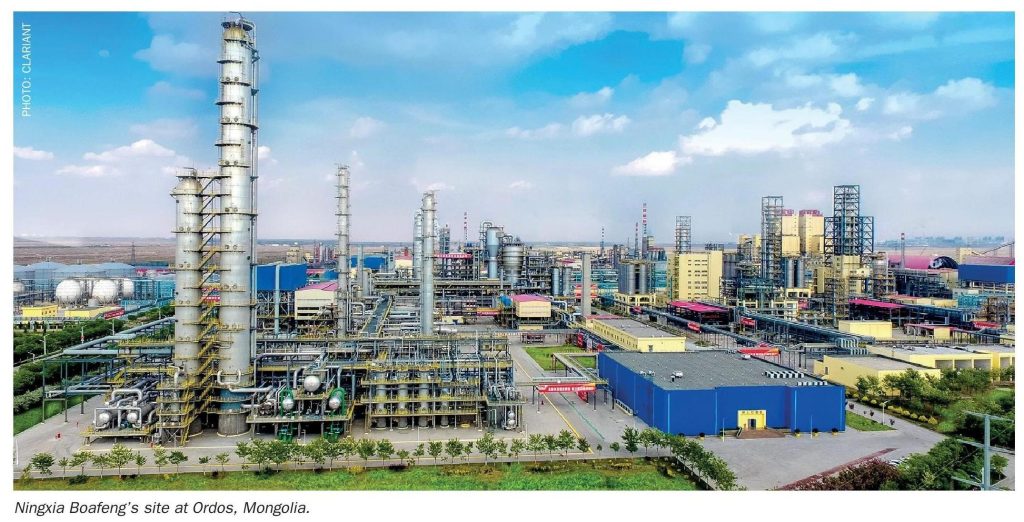Nitrogen+Syngas 397 Sep-Oct 2025

16 September 2025
Start-up of world’s largest methanol plant
Johnson Matthey (JM) says that the three methanol production trains of Inner Mongolia Baofeng Coal-based New Materials Co., Ltd., a wholly owned subsidiary of Ningxia Baofeng Energy Group, were successfully commissioned in November 2024, February 2025, and March 2025, respectively. Located in the Wushenqi Sulige Economic Development Zone of Ordos City, Inner Mongolia Autonomous Region, this plant employs Johnson Matthey’s advanced methanol synthesis technology and catalysts, making it the largest single methanol plant in the world. Inner Mongolia Baofeng also stands as one of the largest chemical enterprises globally that produces polyethylene and polypropylene by using coal as a substitute for oil.
Ningxia Baofeng Energy Group is a key partner of Johnson Matthey in the fields of methanol process licensing and catalysts. The partnership between the two companies began in 2014 and has continued to deepen over the years. The successful start-up of this methanol plant marks another milestone in their long-standing collaboration. Johnson Matthey was awarded the contract for this project in 2020, which included process licensing for three methanol synthesis units, process design, technical review, commissioning support, and the supply of catalysts. To date, Johnson Matthey has licensed seven methanol synthesis units to Ningxia Baofeng Energy Group. This achievement underscores the company’s sustained technology leadership in this critical and fast-growing market, as well as its commitment to delivering the highest standards of quality and performance.
This successful commissioning also represents JM’s 14th methanol plant in China with a capacity exceeding 1.8 million t/a, further highlighting the proven success of using Chinese-fabricated radial steam-raising converters and compressors in large-scale projects.






